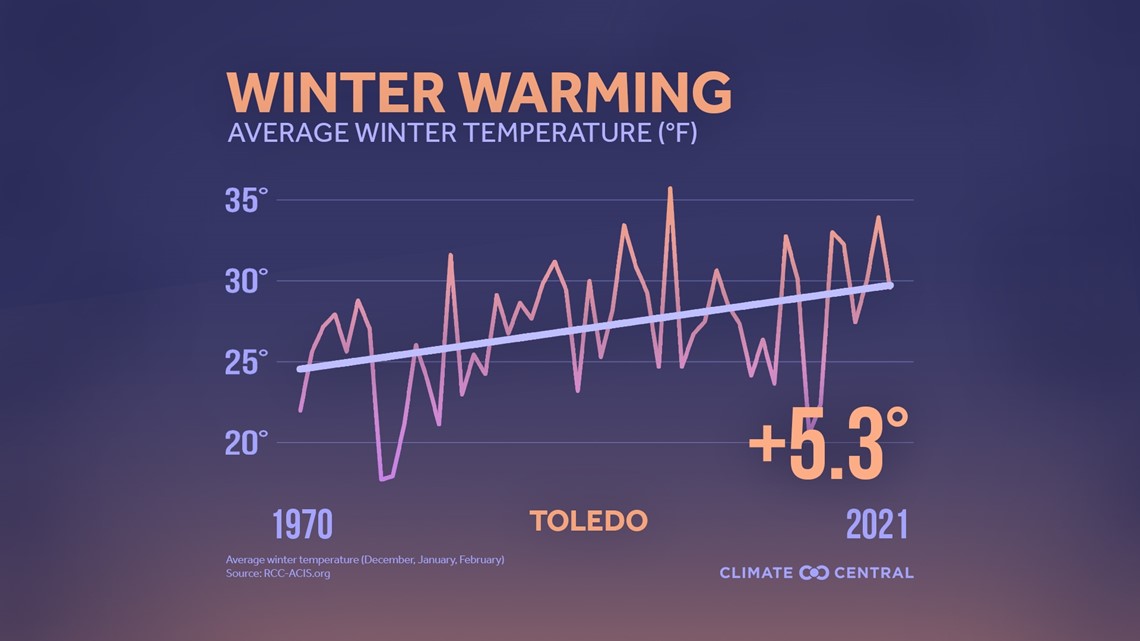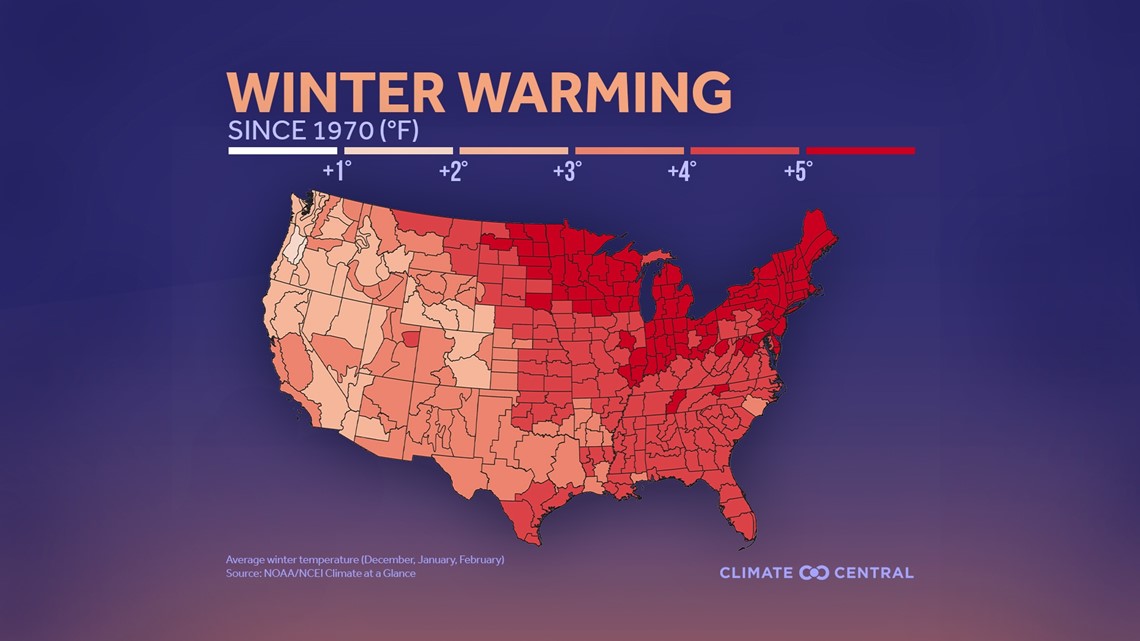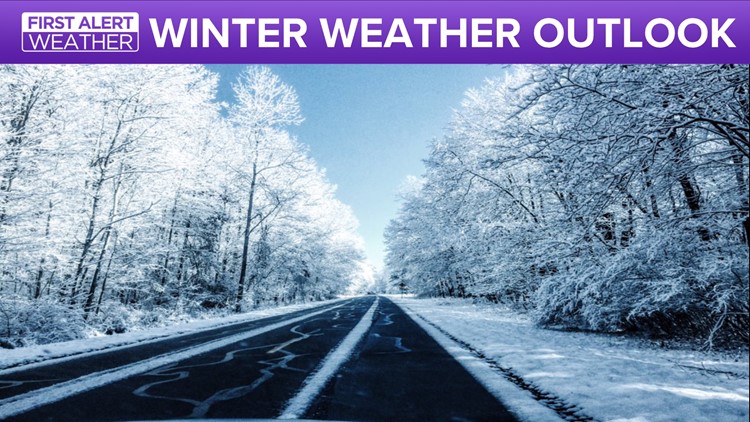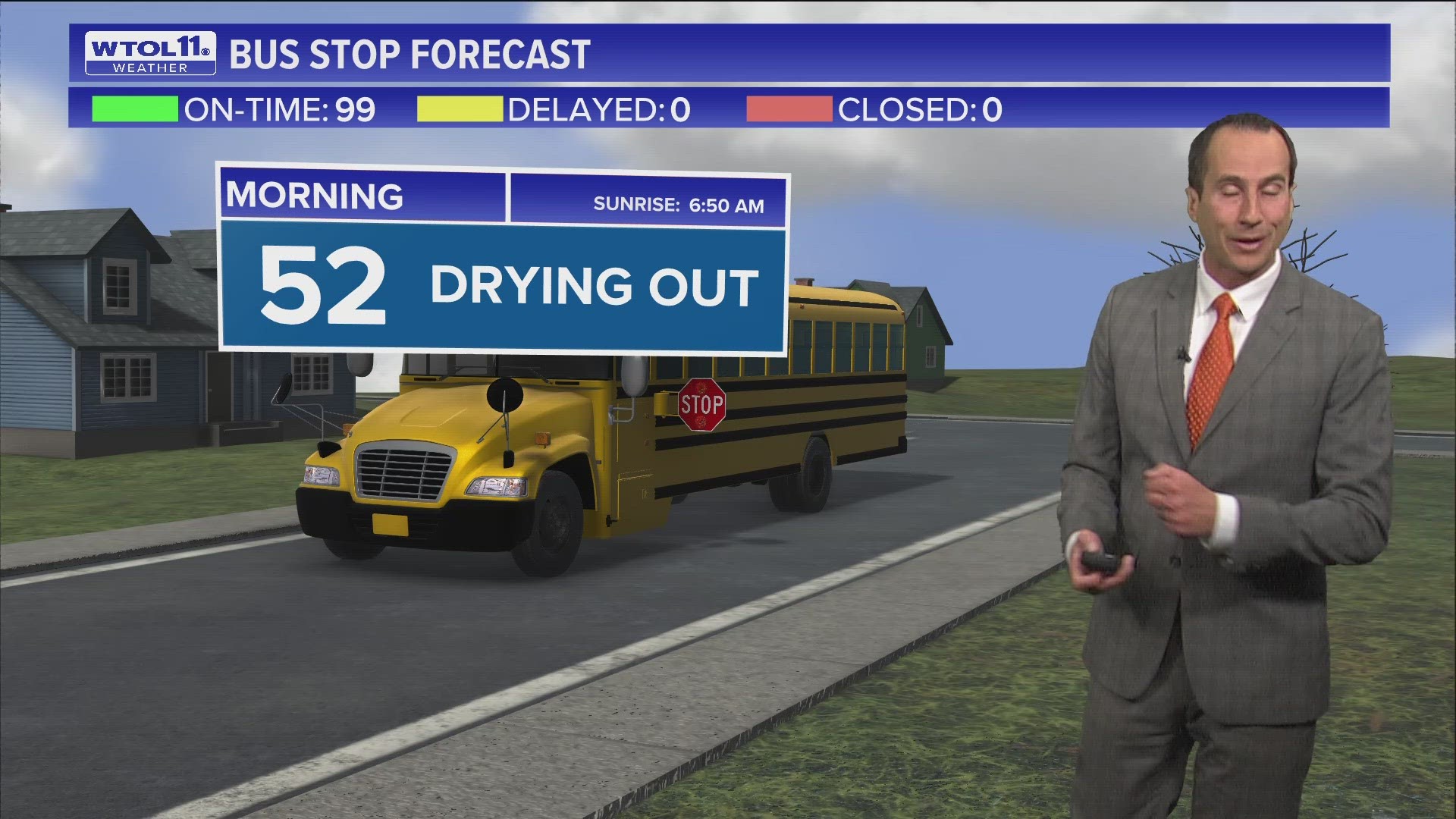TOLEDO, Ohio — EDITOR'S NOTE: The video above is from WTOL 11's Winter Weather Outlook released in mid-November.
Winter officially begins this Wednesday, Dec. 1. That’s right, the term “meteorological winter” is defined by the coldest three months of the year. This covers December, January and February.
The “astronomical winter” begins on Dec. 21 and is marked by the greatest tilt of the Earth’s axis away from the sun.
For comparing data, trends, and overall climate analysis, it’s essential to keep consistent and precise records. The time and date of this solstice changes from year to year, but this general tilt causes the very short daylight hours we receive this time of the year.
Our WTOL 11 Winter Weather Outlook was issued in mid-November and called for above-average temperatures overall for the winter season. This is a common trend in an overall warmer climate and part of our winter weather outlook.
Do you feel that the winter seasons just aren’t as cold as you remember when you were a kid? Well, the data show we can verify that is true. The trend line shows Toledo winters are 5.3 degrees warmer than average winters back in the 1970s and 1980s.
This data may be somewhat skewed by the exceptionally cold and brutal winters in the late 1970s, but the trend is clear. Winters are warmer now than in previous decades.


Is this a trend for just our area or nationally? Again, with unanimous consensus, the winter season is generally warmer for every single climate region in the United States. Some of the warmest anomalies are across the Northern Plains, Great Lakes and North East.


Some of the noticeable impacts to our area are less Great Lakes ice cover, shorter ice fishing seasons, less snow cover on the ground and cold snaps that can be less frequent, shorter in duration and less intense.
With all this said, overall warmer winters don’t mean that extended cold, record-low temperatures and heavy snow will all disappear.
The memory of the extremely cold and snowy winter of 2013-2014 brought both record cold and record snowfall. This was largely considered one of the worst winters since the late 1970s.
Even in an overall warmer climate, occasional winter seasons can and still will be, well, winter!



